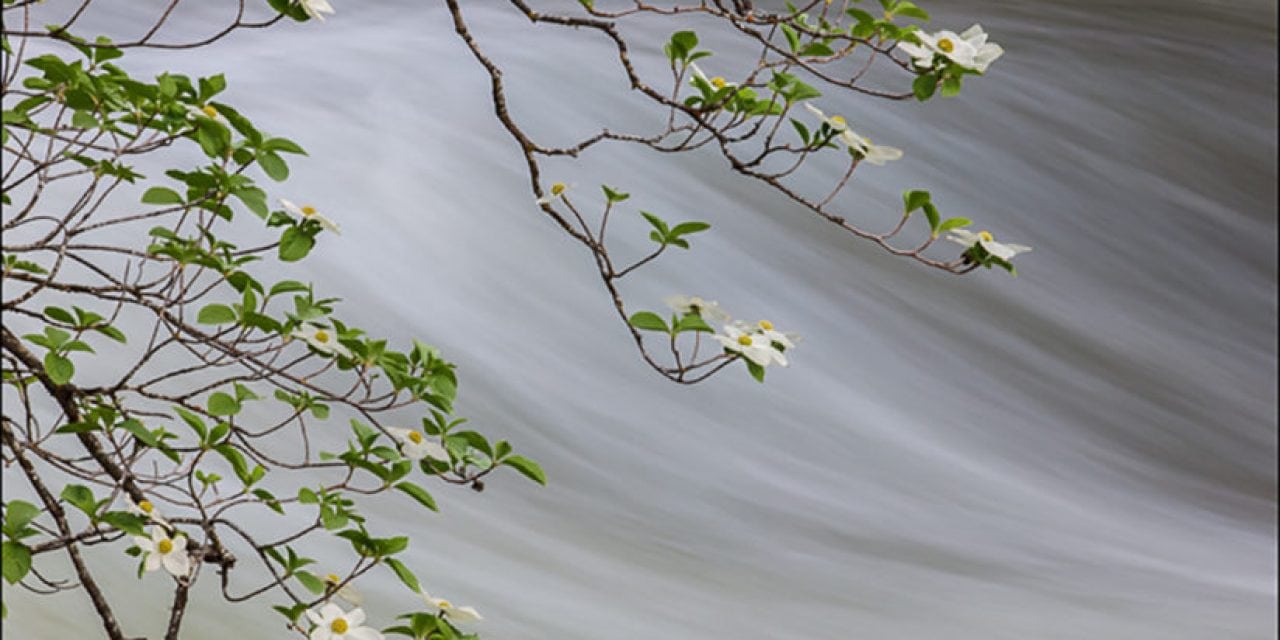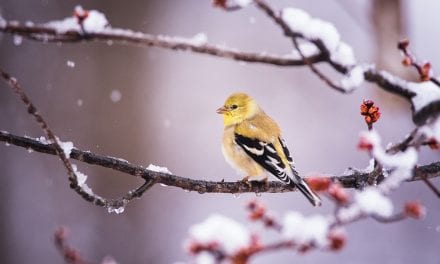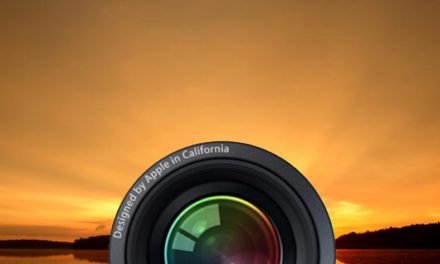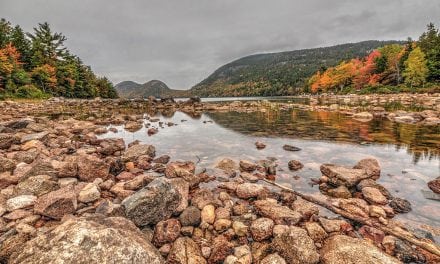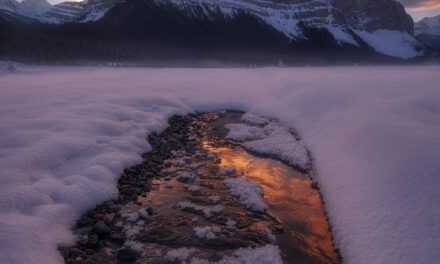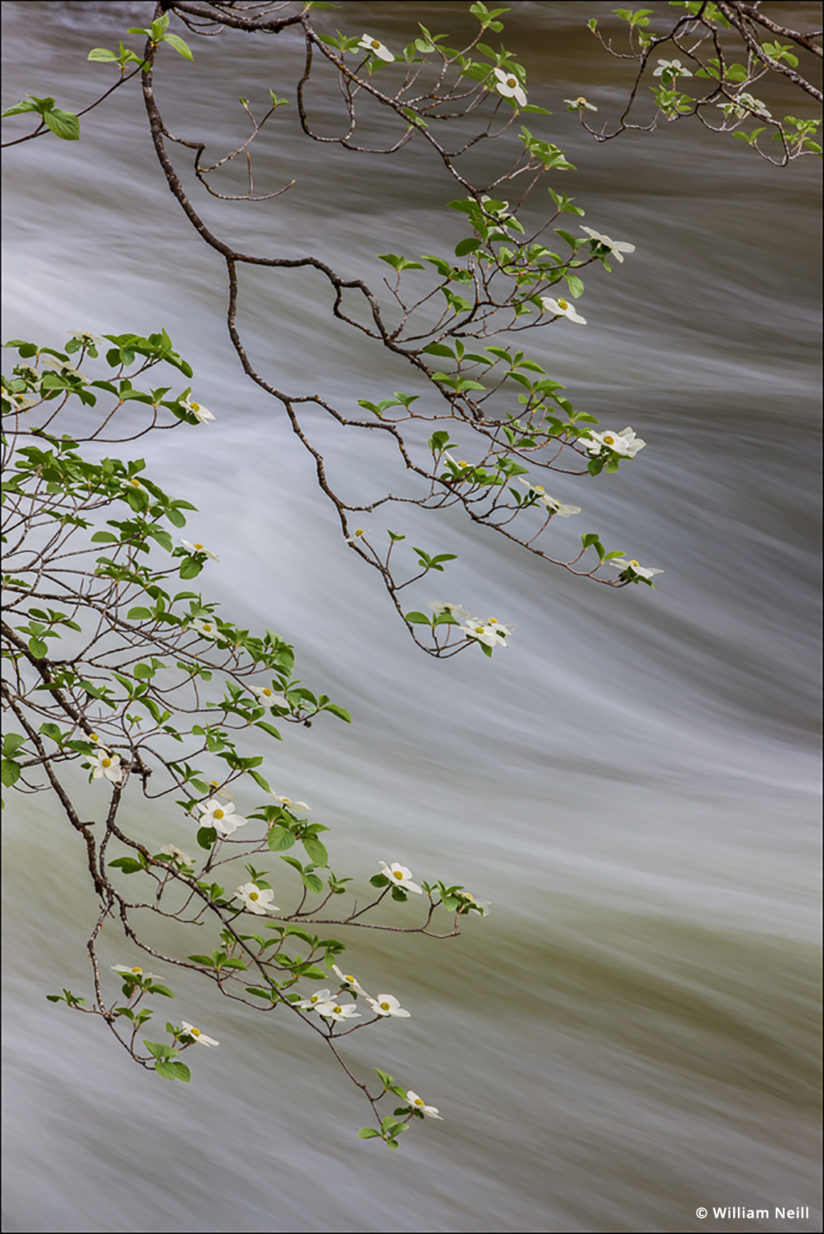
Dogwood Tapestry
I have been photographing the dogwood of Yosemite Valley for 40 years. My favorite locations are along the Merced River where their branches hang gracefully over the rushing water. In the image shown here, I love how these branches form a tapestry effect above the river’s rushing spring runoff.
I made around 45 frames total using several shutter speeds. I wanted a long enough exposure to blur the water but fast enough to have branches sharp. The exposure was 1.5 seconds, requiring that I wait very patiently for the dogwood to be still. Back in the studio, I reviewed each frame with Adobe Lightroom’s Compare View tool, slowly edit down to the best expression of what I saw and felt. Each exposure had subtle differences. My point is that it takes this kind of extra effort both in the field and on the computer to push one’s work to the next level.
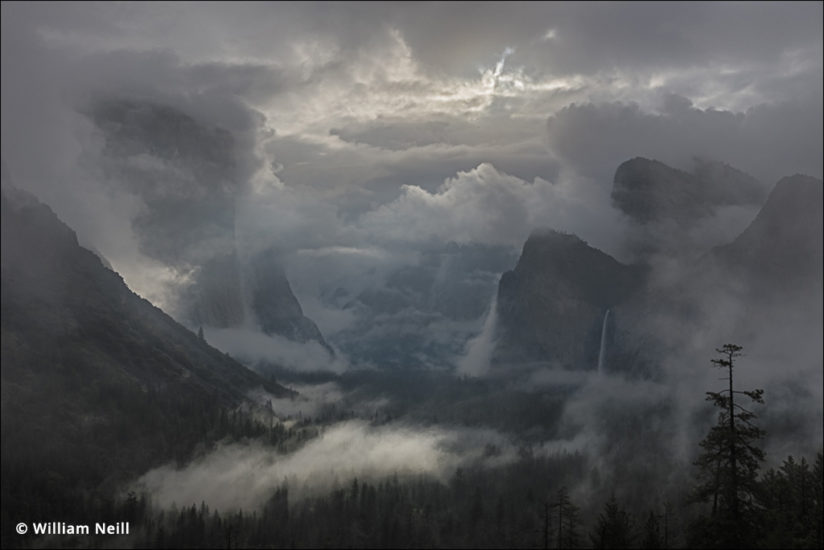
Clearing Spring Storm
Although I generally prefer creating intimate landscape images like the dogwood photograph, when presented with the classic grandeur of this scene with such epic weather and light, I naturally couldn’t resist trying to capture it. Starting before dawn, I photographed two hours of spectacular lighting and swirling clouds and felt blessed to have witnessed it! I made 440 images during that time, including exposure bracketing due to the extremely variable light show.
Some people might think of this approach as lazy and a “spray and pray” technique, but if used with an intense focus on continually changing subjects such as a waterfall or rapidly changing weather, the method can capture nuances that would be missed otherwise. I do believe in photographing with discipline and with as much intentional vision as possible. After all, for most of my career, I used a 4×5 view camera and using sheet film was expensive.
Now I enjoy the luxury of digital capture as I’ve discussed here, but I don’t depend on a high volume of exposures, or the possibility of rescue in Photoshop as an excuse for lack of attention to the details of lighting and composition. The freedom of exploring any subject in depth can be educational if the results are studied carefully. It also can allow the photographer to capture thrilling moments in time to reveal what you, the artist, saw and felt.
YOU MIGHT ALSO LIKE
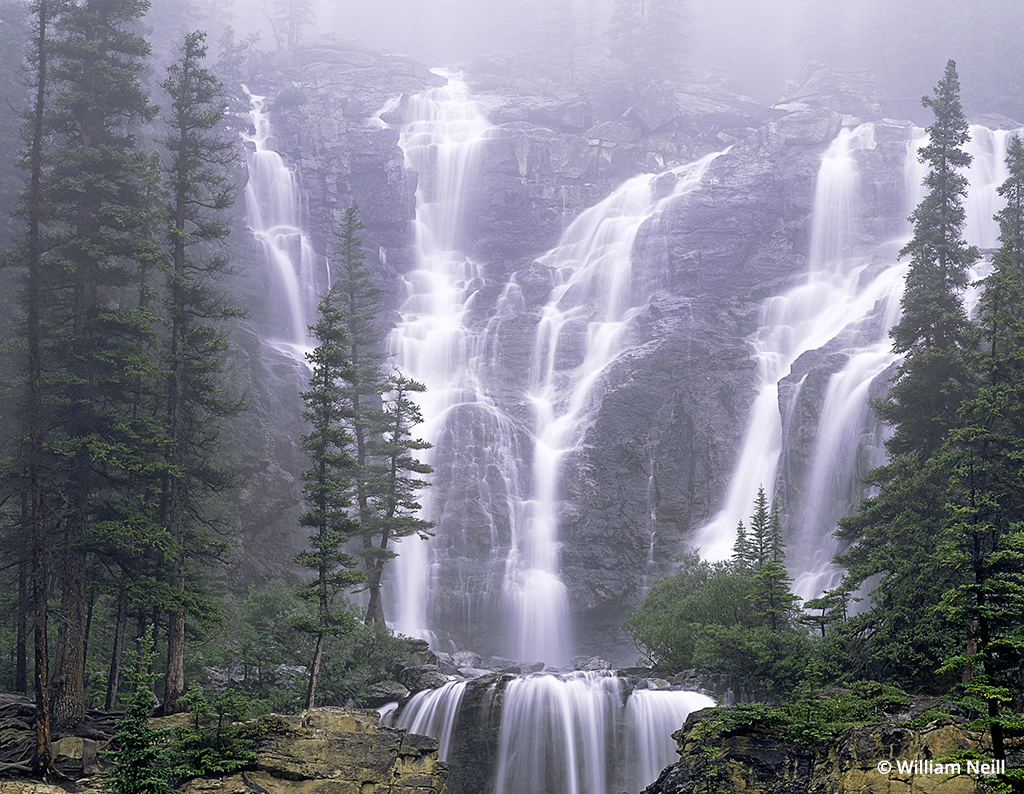
William Neill: Retrospective
Photographer William Neill reflects on a life exploring the fine art of nature photography. Read now.
The post Going With the Flow appeared first on Outdoor Photographer.

